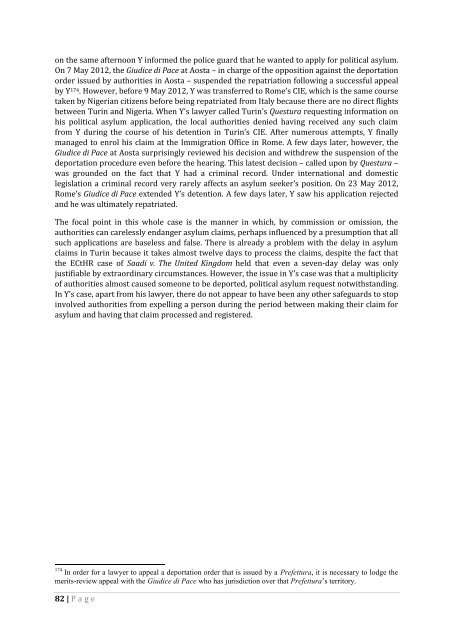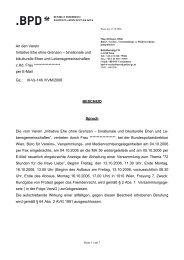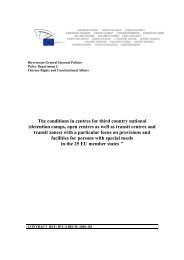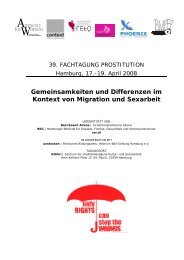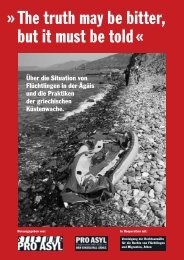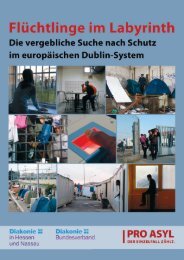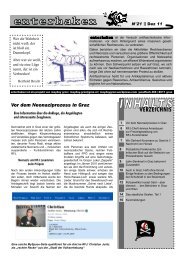Turin's CIE - International University College of Turin
Turin's CIE - International University College of Turin
Turin's CIE - International University College of Turin
Create successful ePaper yourself
Turn your PDF publications into a flip-book with our unique Google optimized e-Paper software.
on the same afternoon Y informed the police guard that he wanted to apply for political asylum.<br />
On 7 May 2012, the Giudice di Pace at Aosta – in charge <strong>of</strong> the opposition against the deportation<br />
order issued by authorities in Aosta – suspended the repatriation following a successful appeal<br />
by Y 174 . However, before 9 May 2012, Y was transferred to Rome’s <strong>CIE</strong>, which is the same course<br />
taken by Nigerian citizens before being repatriated from Italy because there are no direct flights<br />
between <strong>Turin</strong> and Nigeria. When Y’s lawyer called <strong>Turin</strong>’s Questura requesting information on<br />
his political asylum application, the local authorities denied having received any such claim<br />
from Y during the course <strong>of</strong> his detention in <strong>Turin</strong>’s <strong>CIE</strong>. After numerous attempts, Y finally<br />
managed to enrol his claim at the Immigration Office in Rome. A few days later, however, the<br />
Giudice di Pace at Aosta surprisingly reviewed his decision and withdrew the suspension <strong>of</strong> the<br />
deportation procedure even before the hearing. This latest decision – called upon by Questura –<br />
was grounded on the fact that Y had a criminal record. Under international and domestic<br />
legislation a criminal record very rarely affects an asylum seeker’s position. On 23 May 2012,<br />
Rome’s Giudice di Pace extended Y’s detention. A few days later, Y saw his application rejected<br />
and he was ultimately repatriated.<br />
The focal point in this whole case is the manner in which, by commission or omission, the<br />
authorities can carelessly endanger asylum claims, perhaps influenced by a presumption that all<br />
such applications are baseless and false. There is already a problem with the delay in asylum<br />
claims in <strong>Turin</strong> because it takes almost twelve days to process the claims, despite the fact that<br />
the ECtHR case <strong>of</strong> Saadi v. The United Kingdom held that even a seven-day delay was only<br />
justifiable by extraordinary circumstances. However, the issue in Y’s case was that a multiplicity<br />
<strong>of</strong> authorities almost caused someone to be deported, political asylum request notwithstanding.<br />
In Y’s case, apart from his lawyer, there do not appear to have been any other safeguards to stop<br />
involved authorities from expelling a person during the period between making their claim for<br />
asylum and having that claim processed and registered.<br />
174 In order for a lawyer to appeal a deportation order that is issued by a Prefettura, it is necessary to lodge the<br />
merits-review appeal with the Giudice di Pace who has jurisdiction over that Prefettura’s territory.<br />
82 | P a g e


